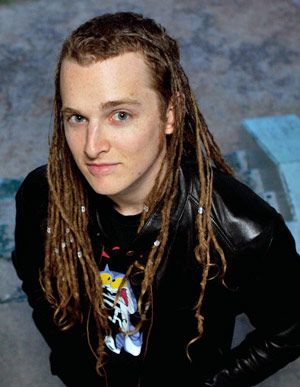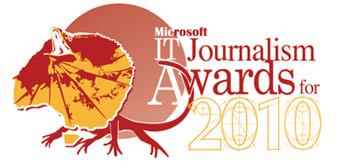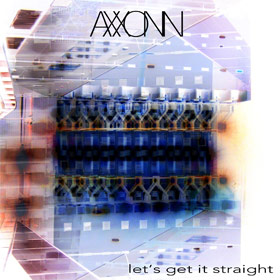The interview isn’t public – ITjourno is for IT journalists only, as you might have guessed – so I’ve republished the Q+A below, with permission.
5 minutes with Andrew McMillen
by Allie Coyne, Tuesday 29th March 2011
Where do you work and what do you do?
I am a Brisbane-based freelance journalist. The majority of my writing is for the arts and entertainment space, for publications like Rolling Stone, The Weekend Australian, The Courier-Mail, TheVine.com.au and Mess+Noise. Tech journalism is a relatively new field for me; since October 2010, I’ve written about the video game industry for IGN Australia.
Why did you decide to become a tech journalist?
In mid-October 2010, there were rumours floating around that a video game development company named Krome Studios had fired all of its staff at both the Brisbane and Melbourne offices. At the time, they employed around 200 staff and were the largest game development company in Australia, so it was kind of a big deal. Yet it appeared that in the aftermath, no media outlets were investigating whether these rumours were true; and if so, why did the company collapse? So since I couldn’t find the answers elsewhere, I pitched the story idea to the editors at IGN Australia. It was the first time we’d been in contact, and they were immediately supportive of the story. I reached out to several former employees of the company, who anonymously provided their thoughts on why Krome collapsed. After speaking with those contacts, I got in touch with Krome Studios’ CEO, Robert Walsh, who agreed to provide his first media interview on the subject.
I worked all of the above into a 2,800 word feature story which gave a comprehensive overview of the situation surrounding Krome Studios’ demise. This was the first time I’d written anything related to the games industry. As mentioned earlier, it only came about because I was curious to know the facts, and because no-one else was reporting on it. It wasn’t so much a decision – “that’s it, time to become a tech journalist!” – as it was a natural instinct to investigate an interesting and mysterious business development. It just so happened that the business was a video game developer. This led to further stories with IGN.
 What are you most proud of?
What are you most proud of?
In tech journalism terms, I’m most proud of securing the Krome story within a couple of weeks. It was an international exclusive, and judging by the response and coverage my article received afterwards, a lot of people wanted to know what went wrong with Krome Studios. That story immediately set the bar quite high for my ensuing feature stories for IGN. Since then, I’ve looked at Australian video games education and Australian big-budget game development. While neither were Krome-scale scoops, I’m proud of all three. But the Krome story was my favourite, because I was going where no-one else had gone before.
Outside of tech journalism, I’m proud of making the most of the five minutes I had to interview hip-hop artist Big Boi – best known as half of the American duo Outkast – backstage in Sydney last November, for TheVine.com.au. It was tough to get something new out of Boi, since he’d been doing interviews – while playing video games – all day, but I eventually broke through with a few well-chosen questions.
What are some top tips you can give PR pros for working with you most effectively?
Get to the point. Don’t waste my time, and I won’t waste yours. If you’re emailing or calling me, you should be reasonably sure that I’ll be interested in hearing what you have to say because you’re representing a client who works within an industry that I write about. If this is not the case, don’t email or call. Find someone else who specialises in that particular area. There’s a lot to be said for tailoring your pitches to the right audience, rather than carpet-bombing as many journalists as you can find.
What did you want to be growing up/ what would you be if not a tech journalist?
One of my first career aspirations was to write about video games for Hyper Magazine, which I loved dearly throughout my childhood and adolescence. As it turned out, my senior editor at IGN Australia is Cam Shea, who edited Hyper between 2005 and 2007. So in a way I’ve ticked that box, though I tend to write about the business side of games rather than the beautiful graphics and totally sweet gameplay. Which is fine by me.
Secret hobbies/ talents?
I’m a passable bassist and competent guitarist. (There’s some evidence on YouTube, but it’s all pretty old footage.) I’m also decent at both IRL soccer and FIFA 11.
What inspires you?
Curiosity is my biggest inspiration. I can’t think of anything worse than sitting around, passively reading and accepting information. I want to be out there asking questions and challenging assumptions. That is the role of a journalist.
Top 5 albums of all time.
Led Zeppelin – Houses of the Holy
At The Drive-In – Relationship Of Command
Minus The Bear – Highly Refined Pirates
The Drones – Wait Long By The River And The Bodies Of Your Enemies Will Float By
The Knife – Deep Cuts
Top-anything lists are ridiculously tough to answer, especially for a music critic. So these are five albums that I love dearly, whose place in the top five feels justified at the time of writing. (Whether I’d still feel that way tomorrow is another question.)
What magazines/ publications do you subscribe to?
Rolling Stone is the only magazine I subscribe to. I read The Weekend Australian and The Courier-Mail‘s Saturday magazine, Qweekend, religiously. Pretty much everything else is consumed online.
What is the most important lesson you’ve learned about journalism?
You can’t substitute curiosity, nor fake it. Remove curiosity from any journalistic equation, and it all comes crumbling down. If you’re not genuinely curious and enthused about a particular interview subject, industry, or topic, it’s going to reflect in your writing – in the worst possible way.
What would your epitaph say?
“I’ll leave it there.” I tend to say this at the end of every interview. It seems apt.
‘Larger technical issue’ in Facebook ad system
 What are you most proud of?
What are you most proud of? 2010 Lizzies finalists announced
2010 Lizzies finalists announced